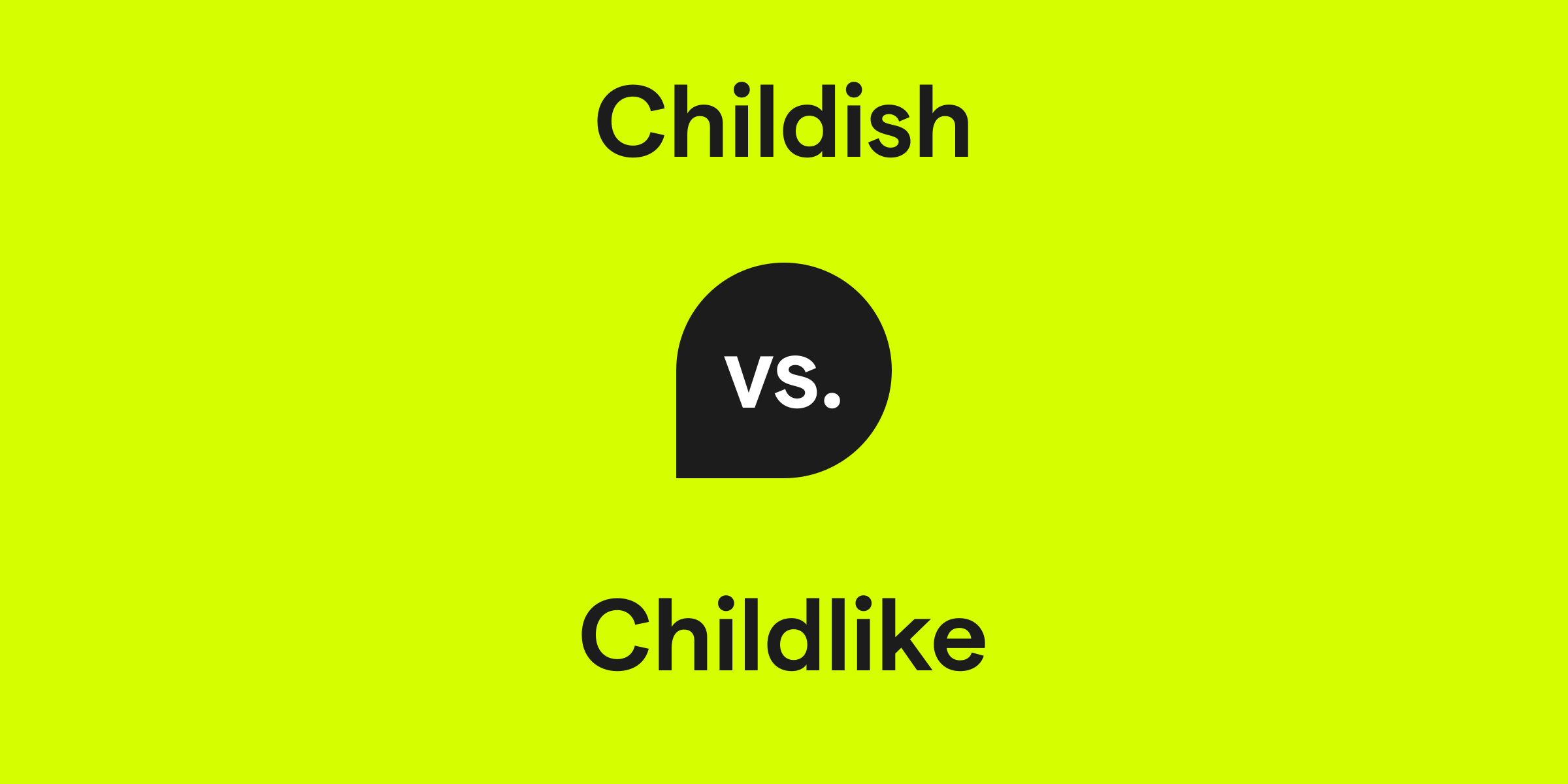Childish vs. Childlike: What's the Difference?
Childish and childlike both stem from the world of children but they carry significantly different connotations. Childish is used pejoratively to describe an adult behaving in a way that is considered immature or inappropriate for their age, usually exhibiting petulance or a lack of self-control. Childlike, however, refers to the positive qualities associated with children, such as innocence, wonder, and sincerity, and is often used to compliment an adult who has preserved these attributes.

How do you use the word childish in a sentence?
The word childish is best utilized to express disapproval of someone's behavior that resembles that of a young child rather than an adult. It's especially apt when pointing out actions or mannerisms that society expects a person to outgrow. You might deploy this term when discussing someone's inability to manage their emotions or when they are being unreasonable or tantrum-like.
Examples of childish in a sentence
- His response to the criticism was surprisingly childish, sulking in the corner rather than engaging in constructive dialogue.
- During the meeting, she displayed a childish impatience, constantly interrupting others and rolling her eyes.
- Throwing food when angry is considered childish and utterly unacceptable in adult society.
How do you use the word childlike in a sentence?
Use the term childlike to highlight qualities like innocence, simplicity, or openness that are reminiscent of a child's way of viewing the world. It's a word that celebrates the retaining of youthful virtues without any negative judgment. Childlike is most appropriate when complimenting an individual's capacity to appreciate life's simple joys or their genuine curiosity and excitement.
Examples of childlike in a sentence
- Her childlike enthusiasm for small pleasures was incredibly uplifting to those around her.
- Despite his age, he had a childlike sense of wonder about the natural world.
- He approached each problem with a childlike curiosity, always asking questions and never assuming he knew all the answers.
Childish and childlike definition, parts of speech, and pronunciation
Childish definition:
Childish refers to behavior, attitudes, or attributes that are considered typical of a child, especially to an embarrassing degree for an adult due to lack of maturity or emotional development.
Childish parts of speech:
Childish pronunciation:
Childish is pronounced as /ˈʧajldɪʃ/.
Childlike definition:
Childlike pertains to the qualities or characteristics of a child, especially those valued and deemed positive, such as innocence or open-heartedness.
Childlike parts of speech:
Childlike pronunciation:
Childlike is pronounced as /ˈʧaɪldlaɪk/.
Childish refers to behavior, attitudes, or attributes that are considered typical of a child, especially to an embarrassing degree for an adult due to lack of maturity or emotional development.
Childish parts of speech:
- As an adjective: The teenage boy gave a childish excuse for being late to class again.
Childish pronunciation:
Childish is pronounced as /ˈʧajldɪʃ/.
Childlike definition:
Childlike pertains to the qualities or characteristics of a child, especially those valued and deemed positive, such as innocence or open-heartedness.
Childlike parts of speech:
- As an adjective: She gazed at the puppies with childlike wonder, completely mesmerized by their playfulness.
Childlike pronunciation:
Childlike is pronounced as /ˈʧaɪldlaɪk/.
Childish vs. Childlike in a nutshell
Although childish and childlike originate from the same root, their implications differ profoundly. Childish denotes immaturity and negative behavior associated with children that is unsuitable for an adult, while childlike celebrates the endearing traits typically ascribed to children, such as purity and a sense of awe. Understanding the distinction between these terms is key to using them correctly and conveying the intended message.
Get AI Writing Assistance Wherever You Type
Make sure your vocabulary is on point and every punctuation mark is in the right place, no matter where you’re working. Grammarly works across more than 1 million websites and apps so you can improve your writing without copying, pasting, or breaking focus.

More Commonly Confused Words
Interest piqued? Pore (not pour) over other commonly confused words to help your writing reach peak (not peek) performance.